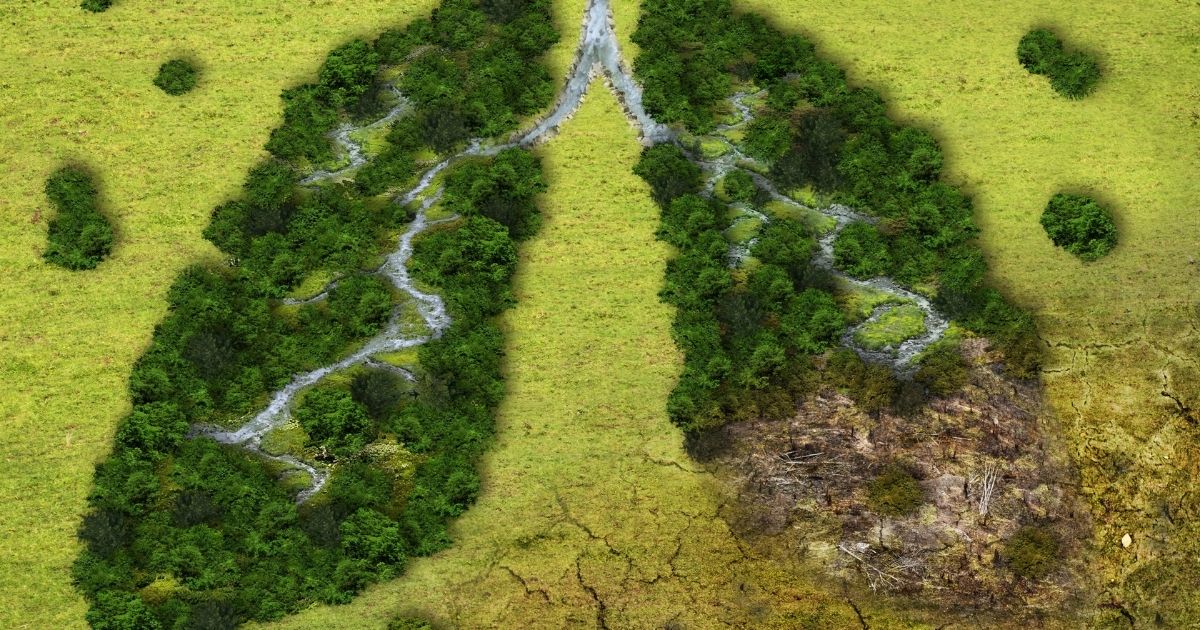By Professor Callum Roberts, University of Exeter
The Intergovernmental Panel on Climate Change has just landed its sixth report in a little over thirty years. The reports feel like one of those long-running television series in which the writers push a bit further every time to keep the audience’s attention: more extreme, more terrifying, more apocalyptic, more implausible. OK, not that last one. The plausibility of the IPCC reports has increased as science tightens the probability bounds around the scenarios, and lived experience validates and exceeds past model predictions. Climate change is no longer an abstract concept or a problem for future generations. It is happening now; we are in the thick of it.
There is another difference between the first IPCC report in 1990, and the present. In 1990, there was still time to act decisively to slow and the reverse warming. This time, the panel’s unequivocal message is that we are too late to stop climate change in its tracks. Even if we were to end greenhouse gas emissions tomorrow, the planet will carry on warming for decades before temperatures stabilise. The sea will continue to rise for centuries, perhaps peaking several metres above the present levels.
There is an urgency and a bluntness in the language of this report that speaks to the frustration of its writers and the thousands of people whose work they draw upon. Past messages have not been heeded. Measured scientific arguments have failed to cut through to political action. Countries continue to subsidise the fossil fuel industry and multinationals carry on prospecting for new deposits when burning their proven reserves is incompatible with the targets of the Paris Agreement. The world is like a glutton that knows it cannot continue to overeat but keeps postponing the diet and exercise needed to regain fitness.
There is still time, the authors suggest, to avert the worst of possible futures. Bold and urgent action is still worthwhile and future generations, if they could, would thank us for taking it. But more and more, we will have to learn to live on a fast-changing planet, adapting our lives to the new reality we have created. The IPCC report speaks of the need for investment in technological fixes to help us out of our predicament. But we are also realising, belatedly, that after emissions reductions, nature is our most effective ally in the pursuit of climate stability.
Greening and rewilding the planet, protecting natural carbon stores and restoring degraded habitats are critical to a safer, more sustainable future.
I remain hopeful, despite past failures, because the world is at last paying attention.
About the Author
Callum Roberts is Professor of Marine Conservation in the Centre for Ecology and Conservation at the University of Exeter's Cornwall campus. His research focuses on threats to marine ecosystems and species and on finding the means to protect them. His main interests include documenting the impacts of fishing on marine life, both historic and modern, and exploring the theory and practical effectiveness of marine protected areas for conservation and fisheries management. For the last few decades he has used science to make the case for stronger protection for marine life at both national and international levels.
Callum Roberts’ award-winning book, The Unnatural History of the Sea, charts the effects of 1000 years of exploitation on ocean life. His second book, Ocean of life: how our seas are changing, shows that the oceans are changing faster and in more ways than at any time in human history, setting out a series of reforms that could lead to a more sustainable future. His latest book, Reef Life, focused on the past and precarious future of the world’s richest marine ecosystem, coral reefs.
He was chief scientific advisor for the BBC television’s flagship series Blue Planet II. He works extensively with ocean conservation charities and is Chief Scientific Advisor to BLUE Marine Foundation as well as a Trustee. He is on the board of the Nekton Deep Ocean Research Institute, scientific advisor to the Maldives Coral Institute, and advisor to the Pew Bertarelli Global Ocean Legacy Program.





